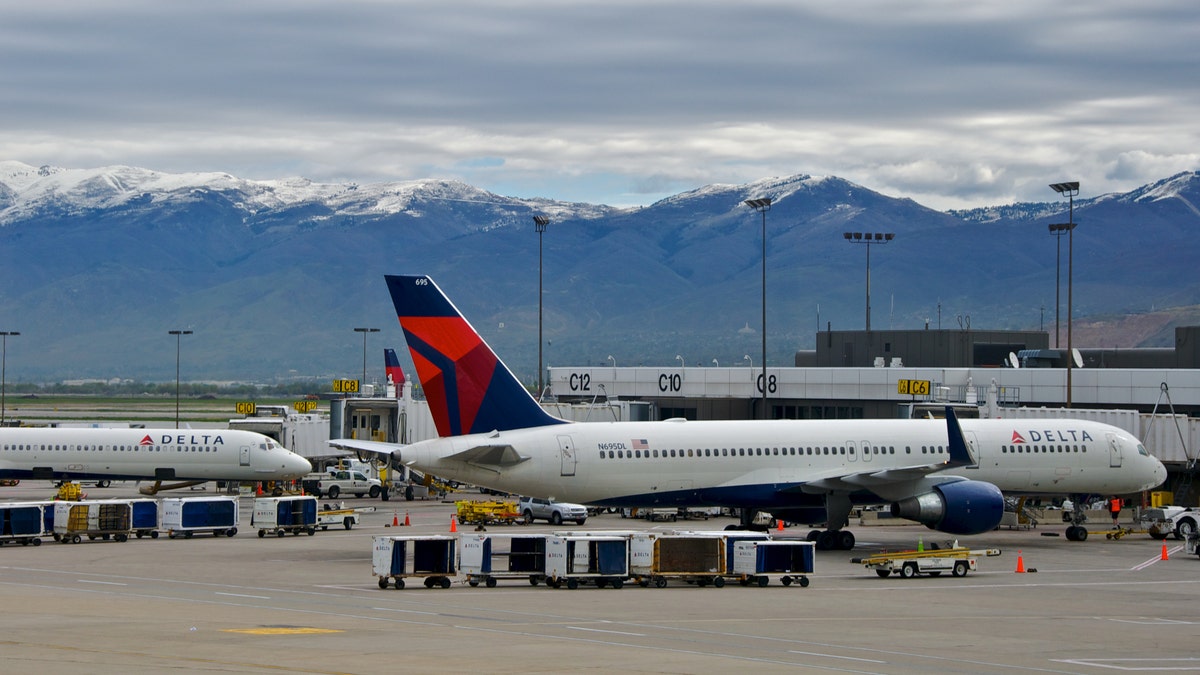
Most of the bird strikes at Salt Lake City International Airport were minor, but in total they caused about $675,000 in damage, said Candace Deavila, airport's wildlife manager. (iStock)
SALT LAKE CITY – Planes at Salt Lake City International Airport collided with 280 birds last year, including one incident where a flock of birds hit a plane carrying 223 passengers and narrowly missed hitting the engine.
Most of the bird strikes were minor, but in total they caused about $675,000 in damage, said Candace Deavila, airport's wildlife manager.
The collision that nearly sent birds into a plane engine occurred in November on a Delta flight leaving for Paris, said Bill Wyatt, executive director of the airport. He told the Airport Advisory Board recently that the Boeing 767 plane safely landed a few minutes later and was repaired but that it was a close call, The Salt Lake Tribune reported .
The birds "didn't go straight into the engine, which is fortunate. Because at that elevation and that location, the potential for recovery is not great," Wyatt said.
Now, airport officials must decide how to handle a new proposal by the Federal Aviation Administration that would require airports to do everything possible to keep all wildlife 5 miles (8 kilometers) from the airport boundaries. That's more than double the current requirement of 2 miles (3.2 kilometers).
The change came after there were 14,500 plane and bird collisions nationally in 2017.
The agency may take away funding for airports that fail to do everything they can to adhere to the new rule. That would include rejecting building permits for projects that would attract birds and wildlife.
The FAA does not want water management plans in the five-mile zone, and Salt Lake City has proposed one within the expanded area.
Salt Lake City is trying to figure out what it would need to do to adjust to the proposed rule, with the possibility of it increasing cots for wildlife controls, Wyatt said. The city plans to provide comments to the FAA about the proposal.
"They believe airports and cities have not done enough," Wyatt said. "I see this as a poke in the eye at this industry for not having done sufficient work."
Wyatt said the airport already works to move birds out of the area, but it's a tall task considering that the airport is located at the nexus of two major flyways.
Lands that used to be a golf course are a particular challenge. The airport said in the last 45 days its crews have chased off 640 geese, 395 ducks and 33 gulls from the former golf course.
"We are surrounded by nothing but habitat for birds," Wyatt said.








































